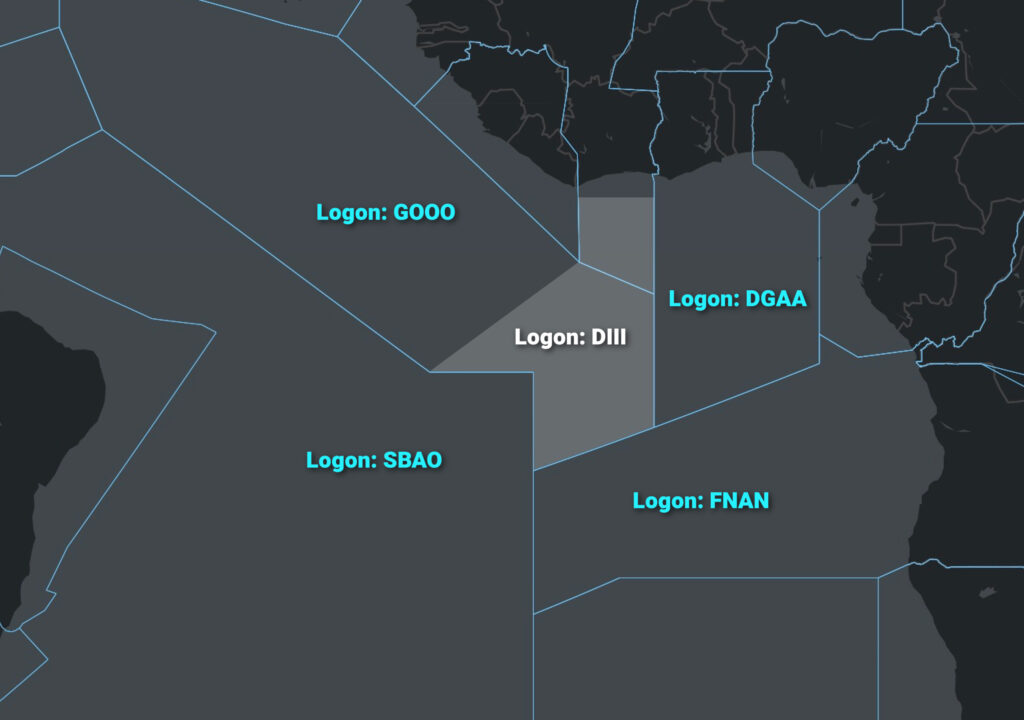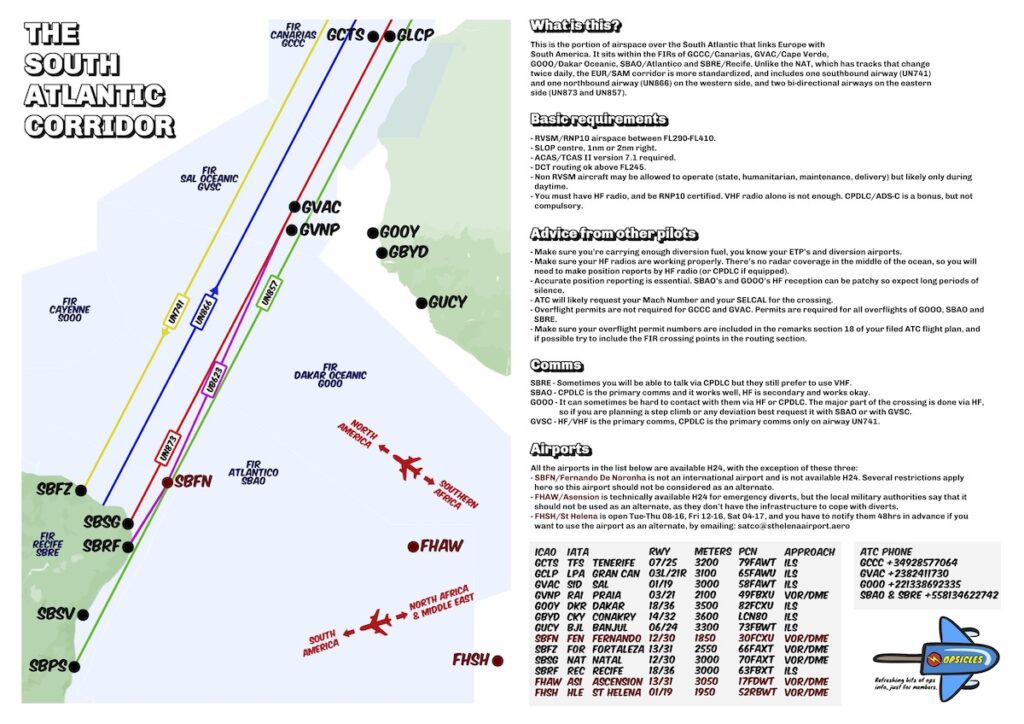There’s been a lot of noise lately from the NAT, especially as we all come to grips with the removal of oceanic clearances.
But it’s important not to forget about the SAT – or South Atlantic. And it seems a CPDLC issue has been regularly occurring in the Abidjan Area Control Center – a large chunk of airspace found south of Africa’s Ivory Coast.
The issue arises from the fact that while the Abidjan ACC is geographically constrained by the much larger Dakar FIR, it is responsible for its own control.
It seems that pilots have been incorrectly logging onto GOOO/Dakar rather than DIII/Abidjan when transiting this airspace. ATC are concerned, and so a new SAT Ops Bulletin has been published. Here’s a closer look at what it contains, and how to mitigate this error on your next crossing.
The Airspace Picture
Part of the problem may be that pilots crossing the SAT are far less familiar with the airspace picture than they are of its big brother, the NAT. So, he’s a quick crash course.
Over the South Atlantic lies the ‘Atlantic Ocean Random Routing Area’, or AORRA.
This is essentially a volume of airspace between FL290 – FL410 within the Atlantico, Accra, Comodoro Rivadavia, Dakar, Dakar Oceanic, Ezeiza, Johannesburg Oceanic, Luanda and Montevideo FIRs.
This article is concerned with the Eastern Side of the AORRA – specifically the DIII/Abidjan ACC (Ivory Coast) which is contained within the much larger GOOO/Dakar FIR and where the confusion is occurring. Aircraft on routes that transit between South America and Sub-Saharan Africa will likely overfly this airspace.

The folk at the South Atlantic Steering Group (SAT SG for short) have reported more and more instances of transiting aircraft incorrectly logging onto GOOO when they should be logging onto DIII while in Abidjan’s airspace.
This then creates communication issues for ATC.
Panic Slowly
While this is cause for concern, SAT SG are quick to explain that in most cases this can be managed safely but vastly increases workload for controllers who must manually resolve the mis-connection.
But occasionally the loss of comms has led to the activation of something called INCERFA – a top-secret ICAO catchphrase for where uncertainty exists as to the safety of an aircraft or its occupants. This alert phase carries its own protocols for ATC.
And so, the key message from the bulletin is this:
‘While Abdijan Airspace is geographically included within the Dakar FIR, it is essential that it is treated as a separate sector for CPDLC logon purposes…’
Simple!
What to do
None of us like unexpected paperwork. So, the SAT SG has also provided us with flight crew procedures to prevent communication problems when overflying Abidjan airspace. Check the SAT Ops Bulletin for these in full, but here’s the lowdown:
Before Entering: Check logged onto Abidjan ACC using correct code (DIII). Confirm logon active by checking uplink message response. Don’t log onto Dakar (GOOO) by mistake.
Failed Logon: Manually log on to DIII if auto fails. Notify Abidjan by voice ASAP if unable to establish CPDLC connection. If practical, trouble shoot before entering.
Transition between Dakar and Abidjan: Monitor handoff carefully. Ensure CPDLC switches before crossing the boundary. Verify correct CPDLC connection is active, especially entering Abidjan airspace.
Have more questions about the SAT?
You can reach the ICAO EUR/NAT office directly via icaoeurnat@icao.int.
For ops in the region, you might also be interested in this little guide on the South Atlantic Corridor we wrote before. OPSGROUP members cash download it from the Dashboard here.
More on the topic:
- More: Western Sahara Airspace Update
- More: Bamako Airport reopens following military coup
- More: Africa: Hajj 2019 routes in operation
- More: Islands of the South Atlantic – enroute ETOPS and diversion options
- More: St. Helena – no hope for opening?
More reading:
- Latest: FAA Warns on Runway Length Data and Overrun Risk
- Latest: EASA’s New Cyber and Data Risk Rule for Operators in Europe
- Latest: Airport Spy: Real World Reports from Crews
- Safe Airspace: Risk Database
- Weekly Ops Bulletin: Subscribe
- Membership plans: Why join OPSGROUP?












 Get the famous weekly
Get the famous weekly 





